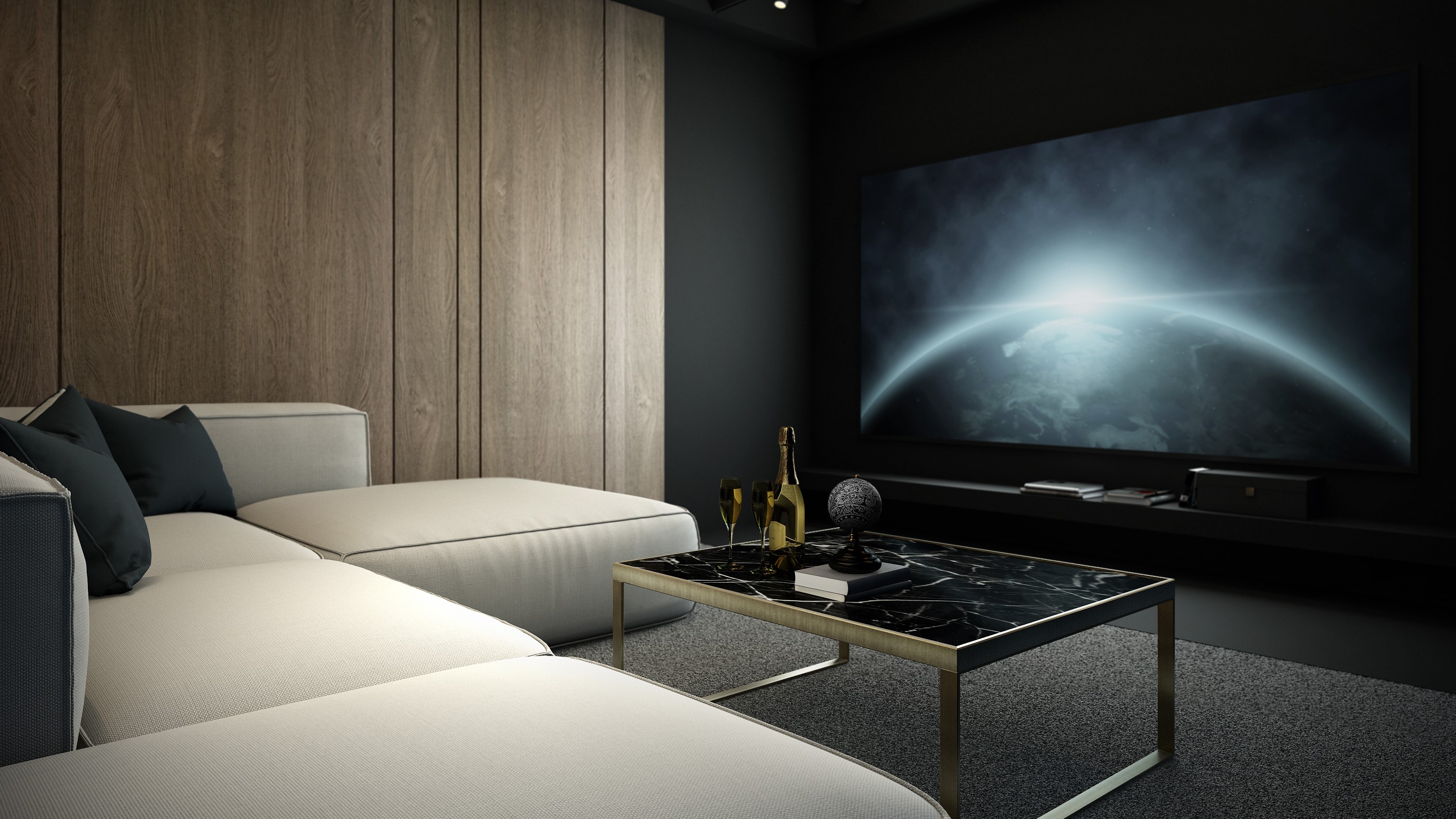Tim Cook's AR ideas could be the end of the TV, and I don't hate the thought
Opinion: Why a 'virtual projector' could be the end of TV

Sign up for breaking news, reviews, opinion, top tech deals, and more.
You are now subscribed
Your newsletter sign-up was successful
In a recent interview with GQ, Apple CEO Tim Cook talked (in the kind of non-specific terms you'd expect from the secrecy-focused company) about his ideas for what useful augmented reality and virtual reality products might look like in real life. Rather than all the metaverse stuff about meeting in a virtual space with cartoony avatars we've heard from Meta and Mark Zuckerberg, Cook's focus is on overlaying things into the real world.
"If you think about the technology itself with augmented reality, just to take one side of the AR/VR piece, the idea that you could overlay the physical world with things from the digital world could greatly enhance people’s communication, people’s connection," Cook said, later adding: "There is this environment that may be even better than just the real world – to overlay the virtual world on top of it might be an event better world."
Cook talked mostly about this in the context of collaborative working (an idea that might be what makes AR/VR work at last). But while Apple makes a ton of work devices, it rarely makes them only for work these days, and I've no doubt that any long-term plans Apple has for AR/VR would include consumer devices too.
Reading the above quote, and knowing that Cook's ideas are about how multiple people could see the same shared AR image, the thing that sprung to mind for me was the idea of a 'virtual projector' in a living room, instead of a TV. People could be sitting on different chairs, all watching the same big-screen image in the same location in the room, created virtually by their own individual Apple Glasses. When you turn away from the screen, you don't see it any more – it's a total replacement for having a screen in the room.
Could glasses make for a better viewing experience?
You might be thinking that having to wear glasses to watch the TV sounds like more hassle than just watching a screen passively as we do today… and you'd be right. But I think there's a hassle trade-off that means there is a chance the idea could take off in the future. Like, quite a way in the future, but still.
It's not because the glasses would be a better viewing experience, but because they'd be a better living experience the rest of the time. Living spaces are getting smaller and smaller, especially for younger people, who largely have to deal with only being able to afford shared or tiny houses and apartments. Which means space is at a premium. There may not be space for a large TV, even if people would like one – or it may mean there's no room for a TV at all in some rooms.
Well, what if you didn't need a TV? Just a small pair of AR glasses that mimics one. This would even add the flexibility of having shared viewing experiences when you're together, or having your own TV in your own space without actually owning a single TV or projector, let alone two. It would mean that these virtual screens could be as big as you want – a home theater without the hassle.
Sign up for breaking news, reviews, opinion, top tech deals, and more.

The customization capabilities of an AR headset
And not just that – but the viewing experience could be customized for each person individually, even if you're all watching the same thing in the same space. Maybe I want the screen to be a 100-inch monster, and you want it to be 65 inches. We could do that. Or I could have subtitles while you keep them off. I even could make the image more bright and vibrant while you keep it more realistic. These virtual TVs wouldn't suffer from reflections either, so they'd be 'perfect' no matter the lighting conditions or window placement.
I'm sure cinephiles (including myself) would be the hardest to impress, and the hardest to convince to replace a cutting-edge HDR screen with just a pair of glasses. Any current version of this tech is a long way from looking like anything as good as the best TVs and best projectors on the planet.
But not that many people actually buy the elite stuff. Most people buy TVs that are simply good enough, or big enough, or convenient enough – at the right price. And if an Apple AR headset could create a screen that's good enough, it would actually beat a TV for being big enough or convenient enough. As long as it can also be the right price.